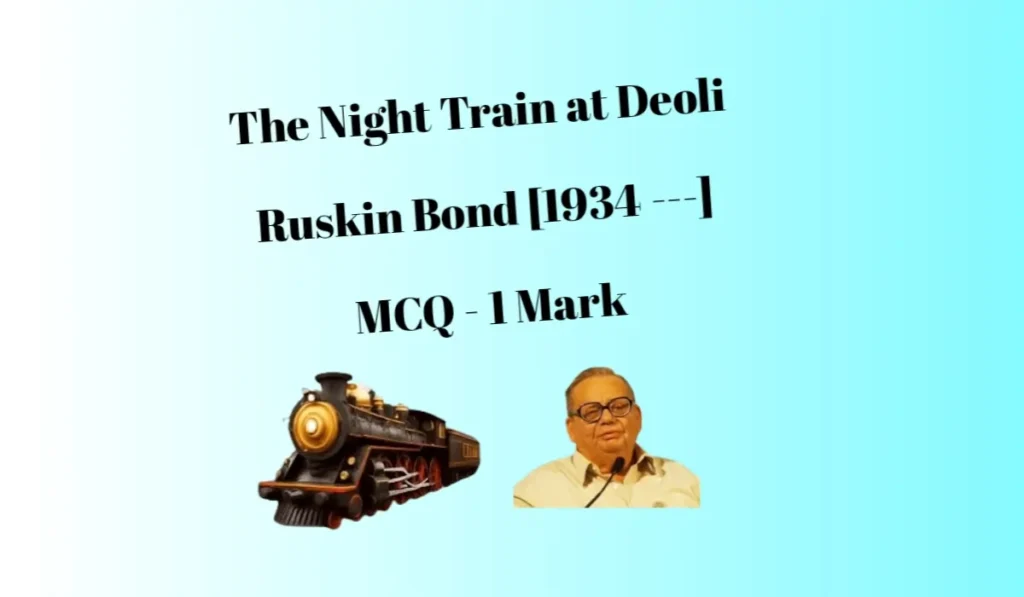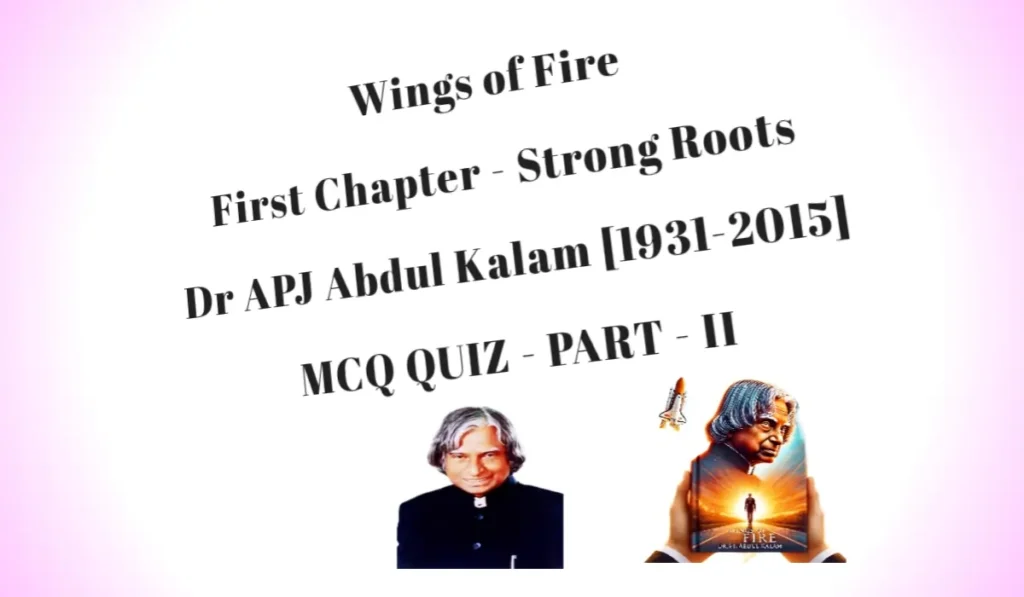The Passing Away of Bapu — Nayantara Sehgal
Table of Contents
👉About The Author
👉About The Text
👉Unitwise Text With Word-notes
Unit 1
Unit 2
Unit 3
👉What We Learn From The Story
About The Author
Nayantara Sahgal, in full Nayantara Pandit Sahgal, (born 10 May 1927), is one of the first female Indian English writers who receive wide recognition. She is a member of the Nehru–Gandhi family, the second of the three daughters born to Jawaharlal Nehru’s sister, Vijaya Lakshmi Pandit, the first woman president of the United Nations General Assembly, who was a very famous figure in the then politics. Sahgal was educated in the United States at Wellesley College (B.A., 1947). The famous Indian female novelist and journalist Nayantara Sehgal in her fiction presents the personal crises of India’s elite amid settings of political upheaval.
Her notable works include—
“Prison and Chocolate Cake” [Memoir : 1954],
“The Day in Shadow” [Novel : 1971],
“A Situation in New Delhi” [Novel : 1989],
“Rich Like Us” [Novel : 1985],
“Plans for Departure” [Novel : 1985],
“Mistaken Identity” [Novel : 1988],
“Relationship” [Collection of letters exchanged between Nayantara Sahgal and E.N.Mangat Rai : 1994],
“Lesser Breeds” [Novel : 2003],
“When the Moon Shines by Day” [Dystopian Satire : 2017],
“Day of Reckoning: Stories” [2015], etc.
Besides these, her political works like
“The Freedom Movement in India” [1970] and “Indira Gandhi : Her Road to Power” [Novel : 1982], and a host of essays like “Point of View : A Personal Response to Life, Literature and Politics” [1997] deserve special mention.
She received the Sinclair Prize (Britain) for fiction in 1985, Sahitya Akademi Award in 1986 for her novel, “Rich Like US” [1985], and Commonwealth Writers Award (Eurasia) in 1987.
She was also a Fellow of the Woodrow Wilson International Centre for Scholars, Washington from 1981 to 1982.
The Library of Congress has twenty-four works by her.
About The Text
The text, an extract from ‘Chapter XIII’ of the author’s memoir “Prison and Chocolate Cake” published in 1954, describes the incidents that took place immediately after the sudden and shocking death of Gandhiji. The text recounts the assassination of Gandhiji and his funeral and how the author and people of India reacted to the news of their beloved “Bapu’s” death. It vividly describes not only the author’s personal sense of loss, but also the collective grief of the entire nation at the passing away of Mahatma Gandhiji.
Unitwise Text With Word-notes
Unit 1
I was having tea at home on the evening of 30th January, 1948, when I was called to Birla house by an urgent telephone. Gandhiji had been shot on his way to a prayer meeting. I was numb with shock as I got into the car.
At the Birla House, Gandhiji’s relatives and followers had gathered round his body. There was silence in the room as Gandhiji breathed his last. Words of Bapuji’s death had spread through Delhi like a flame fanned by wind. Sad groups of men and women had collected around Birla House. Out of every window one could see a brown blur of faces. They did not make a sound. There was an unnatural silence. It was as if time stood still for those few minutes.
The people were too stunned to speak in the beginning. Later they clamoured wildly, shouting and crying. They jostled one another in a stampede to break into the house. They calmed a little when it was announced that they would be allowed to see Gandhiji before the funeral.
When one is faced with the shock of a loved one’s death, one whimpers: “What will become of me now that he has left me?” This was surely the question uppermost in the mind of the mourning people. They looked like lost children. It was the question in many of our hearts as we sat, still shocked and unbelieving. We listened to the broadcast telling the people of India that their Bapu was no more.
Word-notes
passing away (phrasal v. with pass in progressive) : dying
having (v. progressive of have) : taking
urgent (adj.) : compelling immediate action
shot (v. p. pt. of shoot) : killed by firing a gun
numb (adj.) : lacking sensation, unresponsive
shock (n.) : daze, stupor
got into (phrasal v. with get in past form) : entered, boarded
relatives (n. pl. of relative) : persons related by blood and marriage, relations
followers (n. pl. of follower) : persons who accept the leadership of another
gathered (v. p. pt. of gather) : assembled, collected, got together
breathed last (v. p. of breathe) : died
spread (v. p. pt. of spread) : became widely known, circulated
through (prep.) : from one side of an opening or location to the other
like (adj.) : as, sort of
flame (n.) : fire
fanned (v. p. pt. of fan) : spread-out
collected (v. p. pt. of collect) : gathered
around (adv.) : round, on all sides; so as to encircle
brown blur of faces (n. pl. of face) : hazy or indistinct brown faces (sorrowful faces)
unnatural (adj.) : not natural, not accordance with or determined by nature
stood still (v. p. of stand & ‘still’ adj.) : remained fixed or immobile
too stunned (‘too’ adv. & v. p. pt. of stun) : so filled with the emotional impact of overwhelming surprise or shock, so amazed or astonished
later (adv.) : after, afterward
clamoured (v. p. of clamour) : demanded loudly
wildly (adv.) : in an uncontrolled and rampant manner, rampantly
jostled (v. p. of jostle) : made one’s way by jostling, pushing, or shoving
stampede (n.) : a headlong rush of people in a common impulse, a group action
break into (phrasal v. with break) : enter by force
calmed (v. p. of calm) : became quiet or calm, especially after a state of agitation
announced (v. p. pt. of announce) : declared, made an announcement
allowed (v. p. pt. of allow) : let, permitted, granted
funeral (n.) : a ceremony at which a dead person is buried or cremated
faced (v. p. of face) : confronted
shock (n.) : daze, stupor
whimpers (v. with ‘s’) : cries weakly or softly
surely (adv.) : assuredly, undoubtedly, definitely, positively, certainly
uppermost (adj.) : in or into the most prominent position, as in the mind
mourning (participle adj.) : sorrowful through loss or deprivation, bereaved, grief-stricken, grieving
looked like (v. p. of look) : resembled physically
lost (participle adj.) : not knowing where one is, not being able to find one’s route
still (adv.) : at the same time, all the same time
shocked (participle adj.) : appalled, dismayed
unbelieving (participle adj.) : beyond belief or understanding
listened (v. p. of listen) : paid attention to a sound
broadcast (n.) : message that is transmitted by radio or television
Bapu (n.) : here Gandhiji is referred to as ‘Bapu’
no more (adv.) : not now, no longer
Unit 2
Gandhiji’s funeral was to take place the day after his death. Hours in advance, people lined the route the funeral procession was to follow. Padmasi, Mrs Naidu’s daughter, spoke for us all when she said simply: we will walk. It is the last time we shall be walking with Bapu.
It was an agonizing walk. Thousands silently watched the procession. Bapu lay on an open truck covered with flowers. Thousands of people wept, trying to touch Bapu’s feet. It was impossible to move in the thick crowd.
As I moved forward slowly I understood I was not merely in the midst of grieving people. This was even more than the funeral procession of India’s beloved leader. I was among people for whom walking with Bapu had a special meaning. We had walked with Bapu over the rough and smooth of India’s recent history. We could not now accept the fact that the man who had led us over many difficult paths, was never going to walk with us again. Bapu’s slight figure had walked, staff in hand, over a large part of India. To walk is to make slow progress. It is to think with clarity and closely look at all that is around you, from small insects to the horizon in the distance. Moreover, to walk was often the only way open to the average Indian. It required no vehicle except his own body and cost him nothing but his energy. Gandhiji took this necessity, as he took much that was commonplace and transformed it into a joyful effort.
Word-notes
funeral (n.) : a ceremony at which a dead person is buried or cremated
take place (phrasal v. with take) : come about, happen
in advance (adv.) : situated ahead or going before, beforehand
lined (v. p. of line) : be in line with, formed a line along
route (n.) : path, road
procession (n.) : the group action of a collection of people moving forward in more or less regular (as toward a goal)
follow (v.) : go after, come after, to travel behind
simply (adv.) : just, merely, only, plainly
agonizing (participle adj.) : extremely painful
watched (v. p. of watch) : looked attentively, observed
lay (v. p. of lie) : be lying
truck (n.) : an automotive vehicle suitable for hauling, lorry, motortruck
covered (v. p. pt. of cover) : overlaid or spread or topped with or enclosed within something, canopied, clocked, clothed
wept (v. p. of weep) : shed tears because of sadness, rage or pain, cried
impossible (adj.) : not capable of occurring or being accomplished or dealt with, not possible
move (v.) : go, proceed
thick crowd (‘thick’ adj. & ‘crowd’ n.) : dense large number of people
as (adv.) : when
moved forward (v. p. of move) : proceeded toward the front, went ahead
merely (adv.) : only
midst (n.) : middle
grieving people (‘grieving’ participle adj. & ‘people’ n. pl. of person) : mourning or bereaved or grief-stricken people
beloved (adj.) : dearly loved, dear, darling
rough (adj.) : full of hardship or trials
smooth (adj.) : free from obstructions or difficulties
recent (adj.) : of the immediate past or just previous to the present time, late
accept (v.) : consider or hold as true
fact (n.) : a statement or assertion of verified information about something that is the case or has happened
led (v. p. pt. of lead) : headed, travel in front of; go in advance of others
difficult (adj.) : not easy, hard
paths (n. pl. of path) : ways, ways of life
slight figure (‘slight’ adj. & ‘figure’ n.) : slender, slim, thin human body
staff (n.) : strong walking stick
progress (n.) : the act of moving forward (as toward a goal), advancement
clarity (n.) : clearness
horizon (n.) : the line at which the sky and earth appear to meet
distance (n.) : size of the gap between two places, length
moreover (adv.) : in addition, furthermore
average (adj.) : commonly encountered, ordinary
required (v. p. of require) : needed, asked for, demanded, necessitated
vehicle (n.) : a conveyance that transports people or objects
except (prep.) : apart from, with the exception of
cost (v. p. of cost) : be priced at
energy (n.) : a healthy capacity for vigorous activity
necessity (n.) : need, essential
commonplace (adj.) : completely ordinary and unremarkable
transformed (v. p. of transform) : changed or altered in form, appearance, or nature
joyful (adj.) : full of or producing joy, full of high-spirited delight, jubilant, elated, gleeful
effort (n.) : earnest and conscientious activity intended to do or accomplish something, attempt, endeavour
Unit 3
Some days after the funeral, a special train took Gandhiji’s ashes to Allahabad. The compartment was decked with flowers. People on the train sang bhajans. People did not weep anymore for they could feel Gandhiji’s presence amid the flowers and the songs. At every station sorrowful crowds filled the platform. Amid song and prayer the train reached Allahabad. The ashes were immersed in the Ganges where a huge crowd had gathered at the bank. Afterwards we all went back to Delhi.
Back in Delhi, I felt at sea. I had not directly walked with Gandhiji, gone to prison at his call or made any sacrifice for my country. My sisters and I, and other young people like me, had been merely onlookers. But still I felt at sea. I felt I had grown up within a magic circle. With Bapu’s passing away, I felt the magic circle had vanished, leaving me unprotected.
With an effort I roused myself. I asked myself—had Bapu lived and died for nothing? How could I so easily lose courage when he was no longer there? My values were not so weak. Millions of people would have been ordinary folk but for Bapu. He brought them out of indifference and awakened them to one another’s suffering. What if now Bapu is gone? We were still there, young, strong and proud to bear his banner before us.
Bapu had passed away but his India would continue to live in his children.
Word-notes
ashes (n. pl. of ash) : residues that remain when something is burned, here ‘bone ashes’ of Gandhiji after his funeral took place
decked (v. p. pt. of deck) : decorated, beautified
bhajans (n. pl. bhajan) : religious songs
weep (v.) : shed tears because of sadness, rage or pain, cry
anymore (adv.) : any longer
feel (v.) : experience, sense
presence (n.) : the state of being present; current existence
amid (prep.) : in the middle of, amidst, among, amongst
sorrowful (adj.) : bereaved, grief-stricken, grieving
crowds (n. pl. of crowd) : large numbers of people considered together
reached (v. p. of reach) : arrived
immersed (v. p. pt. of immerse) : thrust or threw into, plunged
huge (adj.) : great in amount
crowd (n.) : a large number of people considered together
gathered (v. p. pt. of gather) : assembled, collected, got together
bank (n.) : slopping land (especially the slope beside a body of water), here river bank
afterwards (adv.) : after, afterward, later, later on, since, subsequently
went back (‘go back’ phrasal v. p.) : returned
at sea (adj.) : to be completely lost or deeply confused; bewildered
directly (adv.) : without deviation, straightly
prison (n.) : jail
sacrifice (n.) : the act of losing or surrendering something, forfeit
merely (adv.) : only, just
onlookers (n. pl. of onlooker) : ones who look on
still (adv.) : yet, nevertheless
grown up (phrasal v. p. pt. of grow up) : become an adult, matured
magic circle (‘magic’ adj. & ‘circle’ n.) : here Gandhiji’s great living influence on the people of India
passing away (phrasal v. with pass in progressive) : dying
felt (v. p. of feel) : experienced, sensed
vanished (v. p. pt. of vanish) : disappeared, gone away
leaving (v. in progressive (present participle) : abandoning or leaving behind
unprotected (participle adj.) : lacking protection or defence
effort (n.) : earnest and conscientious activity intended to do or accomplish something, attempt, endeavour
roused (v. p. of rise) : became active or conscious
lose (v.) : miss from one’s possession
courage (n.) : bravery
no longer (adv.) : not now, no more
values (n. pl. of value) : beliefs of a person or social group in which they have an emotional investment
so weak (‘so’ adv. & ‘weak’ adj.) : very weak or feeble
millions (n. pl. of million) : a very large indefinite number
ordinary (adj.) : commonly encountered, average
folk (n.) : common people
brought (v. p. of bring) : conveyed, took
indifference (n.) : unbiased impartial unconcern, distance, aloofness, detachment
awakened (v. p. of awaken) : caused to become awake or conscious
suffering (n.) : misery, agony, excruciation
still (adv.) : with reference to action or condition; without change, interruption or cessation, all the same time
proud (adj.) : feeling self-respect or pleasure in something
bear (v.) : carry, hold up
banner (n.) : any distinctive flag, standard
passed away (phrasal v. p. pt. of pass away) : died
continue (v.) : carry on
children (n. pl. of child) : here Gandhiji’s followers
Abbreviations Used For Word-notes
n. = noun (in singular form)
v. = verb (base or present form)
adj. = adjective
adv. = adverb
v. p. = verb in past form
v. pt. = verb in past participle form
n. pl. = noun in plural form
prep. = preposition
What We Learn From The Text
[I] In this text the author’s personal sense of loss, anxiety and helplessness become a collective grief of the entire nation.
[II] The entire nation felt great shock and became helpless at the sudden demise of Gandhiji.
[III] The reaction of the public shows how Gandhiji’s magnetic personality was over the people of India.
[IV] Gandhiji walked, staff in hand, and led freedom movements with the people of India over many difficult paths, over a large part of India for India’s independence from the British rule.
[V] The significance of walking with Gandhiji is realised again in the funeral procession.
[VI] Finally, death never can be an end of a such great personality. Though Bapu had passed away, he would remain alive in the minds of people with his noble works and lofty ideals.








